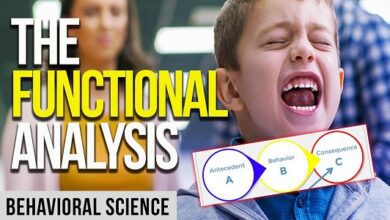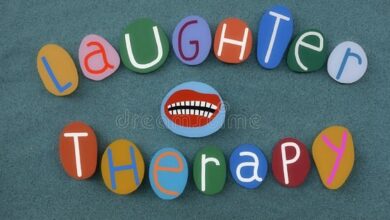What are Limiting beliefs and how to change them and examples
Limiting beliefs or negative beliefs are beliefs or opinions about the reality that keep getting what you want. For example, if someone thinks that “getting a good job is just luck” it would be limited, as they would not be educated, would not try to apply for good jobs, would not make work contacts, among others.
In short, they deal with convictions that prevent personal growth, the achievement of goals and, in general, what each person wants. A negative belief influences and extends into several areas of life and also defines the way of being: personality and behavior .
A belief is the subjective knowledge you have of events occurring in the world, of things/other people and of yourself. It’s a sense of security about what something means. Examples:
- Knowledge of the event: believe that something happens by chance. This influences our potential to act.
- Things / People: Believe that material things are the most valuable in the world / Believe that other people are selfish. It influences our relationships.
- Person: believe you’re worth a lot or believe you’re not worth much. It influences your self-esteem.
Therefore, beliefs can refer to: events, things/people and oneself.
Why are beliefs so important?
A belief leads to an action potential, which leads to action, which leads to results. For example:
- Belief: You think you can finish the triathlon.
- Potential: This belief creates the potential or possibility of being able to finish it.
- Action: You run the triathlon.
- Result: you’re done.
If the belief had been “you think you can’t finish the triathlon”, you wouldn’t even have the potential to start it, which would lead to no action or outcome.
The biggest problem with these beliefs is that they are unconscious. That is, they are influencing your behavior and your life and you don’t even realize it.
Where do beliefs come from?
These beliefs are usually formed from our childhood experiences or are based on generalizations from painful experiences.
Examples:
- A child who is destructively criticized by his parents will begin to have limiting and negative beliefs about himself, which will cause him to build up negative self-esteem and prevent him from developing his potential.
- A child surrounded by people who convey their love and do well in school builds beliefs such as “I am smart”. This belief will guide you to value yourself and greater achievements, as you will trust your possibilities.
However, I have good news, so don’t be discouraged: Beliefs can be changed. In fact, the first step in doing this is to understand what they are (you are reading this article) and realize what beliefs you have. If they are negative and limiting, you will have to change them.
Before …
Before moving on to the next point, I want to give you an example that you are not likely to forget, and with which I hope to convince you of the power of beliefs.
glass illusion
The glass illusion was an external manifestation of a psychiatric disorder that occurred in Europe in the late Middle Ages (XV-XVII century).
People believed that they were made of glass and that they were in danger of breaking into pieces. In fact, one of the people who suffered was King Charles VI of France, who denied people touching him and dressing in extra clothes to avoid “breaks”.
This simple illusion has caused people to change their lifestyles and even avoid human contact.
These medieval beliefs will be long gone, although for people who held them they were real and remarkably influenced their lives. The only difference today is that ours are based on ourselves and our possibilities.
What beliefs do you have that lead to bad habits or limiting yourself?
Next, we’ll see what you need to do to create positive, empowering beliefs that “explore” your potential and allow you to achieve greater achievements.
Examples of limiting beliefs
There are hundreds of limiting beliefs, although I’ll tell you some of the most common ones that you’ve probably had at some point in your life. If you still have them, today is your day to start changing them.
1-It is very difficult, cannot be reached / cannot (situational).
2-Valgus lower than others (personal).
3-People get achievements by luck. The effort is not worth it
4-I can’t count on others (relationships).
5-Others are selfish (relationships).
6-If I win they won’t love me (situations).
7-If I show someone that I am interested in him, he will reject me (relationships).
8-If I go wrong, they will laugh at me (relationships).
9-I don’t care about anyone and they don’t love me (guys).
10-Success only leads to more (situational) problems.
11-Because I have a bad past, I am unhappy.
12-Others: I’m useless, I can’t help anyone, I deserve the worst…
Do you have any or have you had one? Are you aware now of what those beliefs would limit you? If you had them, they would be causing your life not to prosper and preventing you from moving forward and improving in certain areas of your life.
How to change negative beliefs
The reality is that it’s hard to change your mind, although it’s worth it, because from the moment you do, you’ll start to experience new results in your life.
These are the steps you can take:
1-Write down your beliefs
See the results you are having in your life that you don’t like. What are they due to? Is there a belief that is influencing a behavior that leads to the negative outcome? What assumptions and beliefs do you have that are holding you back from fulfilling your potential?
2-Become aware that they are beliefs and not realities
This is a tricky step because you might think these negative beliefs are real. Do you remember the crystal people? They didn’t even want to be touched…
Reflect on these beliefs. How do you know they are true? Do you have evidence?
You don’t get a good job because it’s not worth it or because you don’t think it’s worth it? Do you not talk to people you like because they are unattractive, or do you not talk to people you like because you think they are unattractive?
3-Associating limiting beliefs with something negative
Think about these beliefs and associate them with something you don’t like, which you associate with something very negative, even pain.
For example, think about believing that you won’t get a crappy job where you’ll be exploited.
4-For each belief, build a new belief
For the examples I wrote in point 4:
1-It’s very difficult, you can’t / I can’t (situational).
2-Valgus smaller than the others (personal) .- Valgus equal to the others.
3-People get achievements by luck. The effort is not worth it. – People don’t get anything without effort.
4-I don’t count on others (relationships) .- I count on people and I can ask for help.
5-Others are selfish (relationships) .- Others are friendly, I can have good relationships.
6-If I win, they won’t love me (situations).- If I win, they will love me like before.
7-If I show someone that I am interested in him, he will reject me (relationships) – If I show interest in someone, he will appreciate it.
8-If I go wrong, they will laugh at me (relationships).- If I go wrong, there will be people who will admire me for trying and those who laugh are useless, who don’t even try.
9-I don’t call anyone and they don’t love me (personal) – I call people close to me and they love me.
10-Success only leads to more problems (situational) .- Success includes having a good quality of life and problems are inevitable and can be solved.
11-For having a bad past, I am unhappy. – It is the present that counts and my negative past can help me to be stronger.
12-Others: I’m useless, I can’t help anyone, I deserve the worst…
Other positive beliefs would be:
-If I’m committed, I can do it.
-Everything happens for a reason.
-The past does not limit me, it makes me grow.
–Life is a gift to be enjoyed.
-What really matters is what I think of myself, not of others.
5-Associate the new beliefs with something positive
Now, take the three beliefs that you feel are most limiting and associate them with something positive.
For example, believe that if you try and fail, others will look up to you, associate it with a positive emotion, or reach for it.
6-Act
This step may seem radical or anxiety-inducing, but it works best.
Even if you don’t already have these beliefs, you can act as if (examples):
- You are attractive
- Worth a lot.
- You are nice and friendly.
- ES smart.
- Failure only allows you to move forward and learn from mistakes.
If you act in a way you’ve never acted before, you’ll see new results, and those results will contribute to building new beliefs.
For example, public speaking will contribute to the belief that you are bold, which in turn will allow for other bold behaviors that will lead to other positive outcomes.
Now it is your turn. What are your limiting beliefs? How did they influence your life? I’m interested in your opinion. Thanks




